How Accurate Are Skin Diagnostic Machines?
Choosing the right skin analysis machine isn’t just about specs—it’s about dependable accuracy you can build services around. In this guide, We explore what impacts skin analysis machine performance, including device quality, technology, algorithms, and user handling, while highlighting ways to improve accuracy and consistency through AI-driven insights.
You’ll also see how DJMImoreme’s data-driven approach—multi-spectral imaging, rapid AI processing, and product-matching—translates into clearer insights, smoother consultations, and better outcomes for salons and clinics.
What Affects a Skin Analysis Machine’s Accuracy?
|
Factor |
What it means |
Why it matters |
|
Device Quality |
Hardware build, sensors, optics |
Determines imaging depth and signal-to-noise; directly impacts detail and stability |
|
Technology Used |
AI/multi-spectral vs. traditional single-light or rule-based |
AI integrates more features and adapts over time; traditional methods struggle with individual variability |
|
Algorithm Quality |
Training data diversity, labeling quality, bias control |
Drives accuracy and consistency; poor data leads to misses or false alarms |
|
Medical vs. Cosmetic Use |
Medical-grade diagnostics vs. cosmetic assessment |
Medical detection (e.g., melanoma) is still evolving and varies by setting; cosmetic metrics are more reliable |
|
Human & Subjective Factors |
Capture conditions, user handling, threshold settings |
Small changes in lighting, angle, or skin condition can shift results |
Device Quality
Premium systems pair multi-spectral illumination with precision optics to capture detail beneath the surface; entry-level units largely pick up shallow cues. For dependable results over time, favor devices with documented calibration and thermal control, plus published reliability metrics (e.g., test–retest > 0.90, illumination uniformity ≈ 90%).
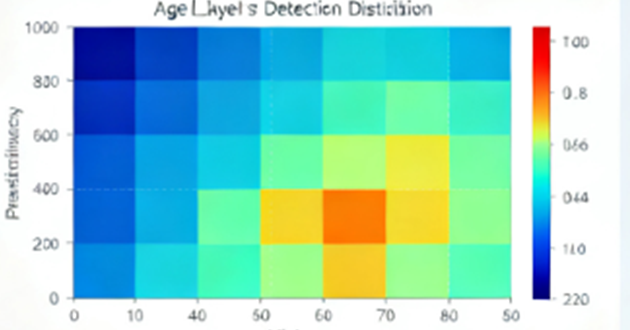
Technology Used
Platforms that combine AI with multi-spectral/UV imaging extract richer signals—porphyrin fluorescence, sub-surface pigmentation—and track change more consistently than older, rule-based designs. In controlled evaluations, these hybrids typically deliver a clear precision gain over legacy setups.
Algorithm Quality
Accuracy rises and falls with the training data and validation strategy. Models built on diverse, well-labeled image sets and verified externally misclassify less across Fitzpatrick I–VI and maintain steadier performance in routine use.
Medical vs. Cosmetic Use
For trend monitoring—hydration, oil balance, pigmentation, pore appearance—most machines are dependable. Suspicious lesions (e.g., melanoma risk) are different: results vary by system and must be reviewed by a dermatologist. Treat device output as guidance, not a diagnosis.
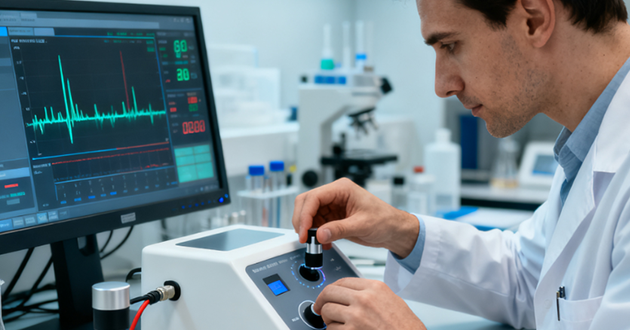
Human & Subjective Factors
Lighting, camera angle, and skin prep can shift readings; small inconsistencies may introduce a 5–10% variance. Standardize your setup (fixed distance, consistent lighting, similar time of day), keep skin makeup-free, and use the same device for follow-ups to make comparisons meaningful.
How to Improve Skin Analysis Device Accuracy
Choose the Right Device
When selecting a skin analysis device, prioritize professional-grade models with AI-driven image processing and multi-spectral illumination. These systems read beneath the surface, capturing data that entry-level or single-light devices miss. Models with reliability above 0.90 and ~90% illumination uniformity tend to deliver steadier results over time. Solid calibration workflows and sealed, replaceable optics further enhance accuracy, so the readings you use for skincare or treatment planning remain consistent across sessions.
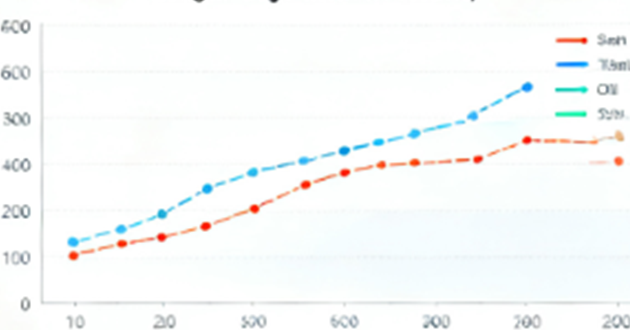
Understand Data Limitations
Smartphone-based AI skin analysis apps are convenient but technically constrained—relying on basic cameras and ambient light means most information is surface-level. Variations of about ±10% between sessions are common when distance or lighting isn’t controlled. These tools are fine for quick self-checks, but they shouldn’t drive clinical decisions or major product choices. Knowing the gap between apps and a dedicated skin diagnostic device helps you focus on real, long-term trends rather than one-off fluctuations.
Consult a Dermatologist
An AI skin analysis machine can flag irregularities, but it cannot replace clinical judgment. Any persistent change in color, texture, or lesion shape—especially with itching or bleeding—should be examined by a dermatologist. Professional diagnostics, such as dermatoscopic imaging or biopsy, remain the gold standard. Pairing device insights with expert review improves early detection while avoiding unnecessary alarm or false reassurance.
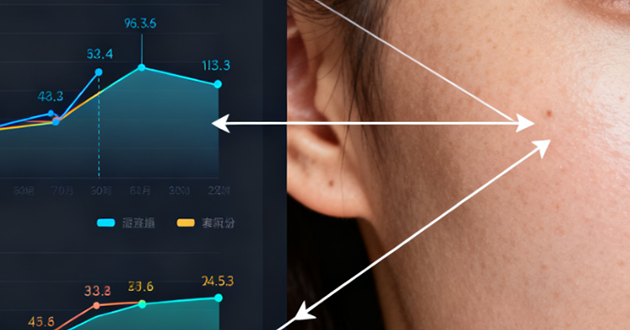
Follow Up and Track Changes
Accuracy grows with repetition under controlled conditions. Use the same skin analysis device, keep lighting consistent, and scan makeup-free skin at roughly the same time of day. A structured interval—every 4–8 weeks for general assessment or 2–4 weeks during targeted treatment—helps capture real progress. Take 3–5 images per session and average them to reduce random noise. Over time, a consistent protocol turns raw readings into a clear picture of how your skin responds to products, lifestyle, and environment.
What to Know About Skin Analysis Machine Accuracy
High Consistency
Some AI-enabled skin analysis devices report up to 95% test–retest reliability on narrow metrics such as pore counts or pigmentation area. That level of repeatability keeps readings stable across sessions, making trend tracking more trustworthy than one-off snapshots. Our DJMImoreme Professional Skin Analysis system follows a standardized capture workflow and targets 9 skin concerns, helping the same parameters be measured the same way every time for cleaner before-and-after comparisons.
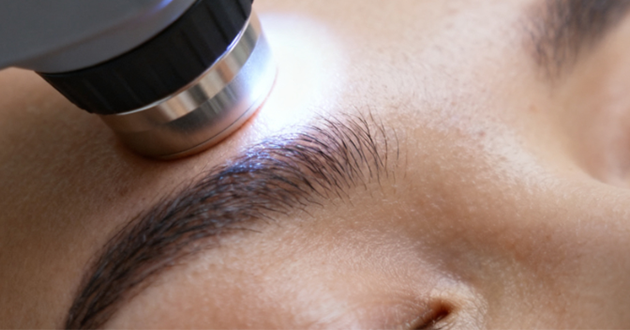
AI-Assisted Diagnosis
Integrating AI can raise diagnostic accuracy by surfacing subtle patterns clinicians might miss under time pressure. In practice, the best results come from a partnership: AI standardizes and quantifies, while a medical professional integrates history, context, and examination to reach the final judgment. With DJMImoreme’s 60 trillion operations per second processing, the model can analyze rich multi-spectral signals quickly, so practitioners spend less time waiting and more time interpreting what matters.
Consumer App Limitations
Phone-based apps are convenient but constrained by camera hardware and ambient lighting, so outputs skew toward surface cues—leading to occasional false positives or missed early changes. They’re fine for casual check-ins and habit building, but not for precise assessment or treatment decisions. A professional skin analysis device like DJMImoreme pairs controlled illumination with a 23.8-inch HD display, making it easier to review side-by-side images, zoom into micro-details, and discuss findings with clients in real time.
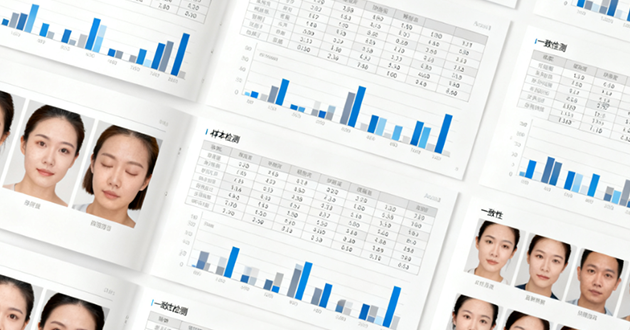
Supplement, Don’t Substitute
Even top-tier devices are decision-support tools, not stand-alone diagnosticians. New or changing lesions—especially those with color/border changes, itching, or bleeding—should always be reviewed by a dermatologist. DJMImoreme is designed to complement that workflow: clear visuals, structured metrics across 9 skin problem areas, and fast AI summaries that help guide the conversation—while the clinician provides the final call.
What Is the Best Skin Analysis Machine?
The DJMImoreme Professional Skin Analysis Machine redefines precision and personalization in modern skincare diagnostics. Powered by AI trained on over 16 million skin cases, it delivers exceptional accuracy and depth, turning every analysis into meaningful insights your team and customers can trust. Designed for professional use, this all-in-one device features multi-spectral imaging, a 23.8-inch HD display, and real-time data processing at 60 trillion operations per second—providing crystal-clear visuals and rapid analysis. With personalized product recommendation algorithms, salons and clinics can instantly connect test results to targeted skincare solutions, ensuring clients receive customized care while increasing sales potential.
Example of Application:
In a beauty salon setting, the DJMImoreme machine quickly scans a client’s skin, detecting hydration levels, pigmentation, pores, and sensitivity within seconds. The system then generates a tailored skincare plan—automatically matching the client’s results with the salon’s own product catalog. Staff can use the interactive display to explain findings, recommend treatments, and showcase products visually. This seamless, data-backed approach not only enhances customer trust but also drives 20–30% higher product conversion rates.
Despite its advanced performance, the DJMImoreme skin analysis machine is priced significantly lower than imported alternatives like VISIA or Meicet Pro—making it the ideal solution for clinics, spas, and beauty studios seeking high-end results without a high-end price tag.

This Thanksgiving, enjoy exclusive discounts on the DJMImoreme Professional Skin Analysis Machine. Upgrade your business with AI-powered precision—contact us now to claim your holiday offer!
Conclusion
Accuracy comes from the right foundation (pro-grade hardware and algorithms), clear protocols, and smart follow-up—not from a single scan. Use a skin analysis machine for standardized insights, pair findings with professional judgment, and keep conditions consistent to turn readings into real progress.
Table of Contents
Related information
How can we help you?
Have specific questions or requests? Fill out our inquiry form, and our dedicated team will get back to you promptly. Your inquiries are important to us, and we are committed to providing comprehensive and personalized responses tailored to your needs.


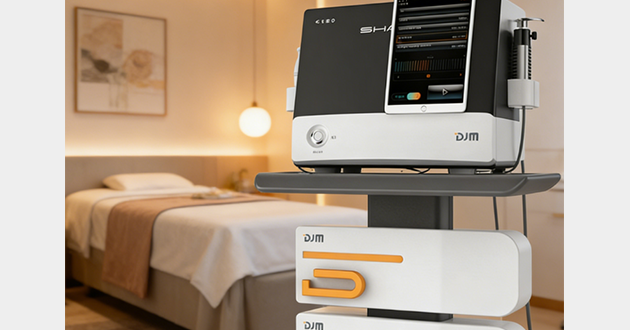
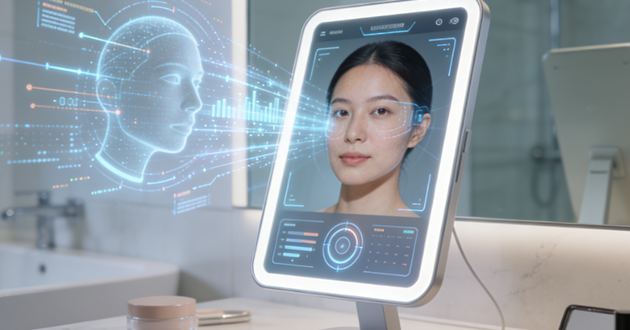




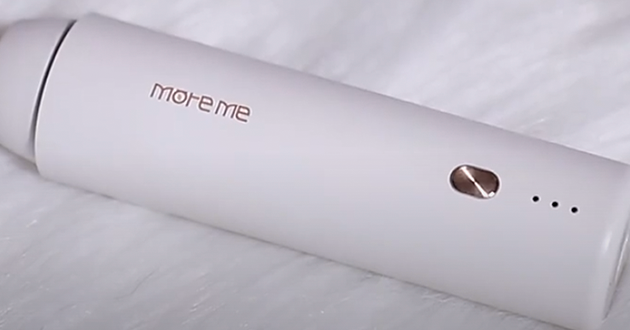


 Reach out to us today!Whether you are preparing to start your own
business in the beauty industry, are ready to upgrade your
equipment, or are just interested in our products,Contact us
today, and let’s explore how we can partner to achieve your goals
and drive your success to new heights!
Reach out to us today!Whether you are preparing to start your own
business in the beauty industry, are ready to upgrade your
equipment, or are just interested in our products,Contact us
today, and let’s explore how we can partner to achieve your goals
and drive your success to new heights!
